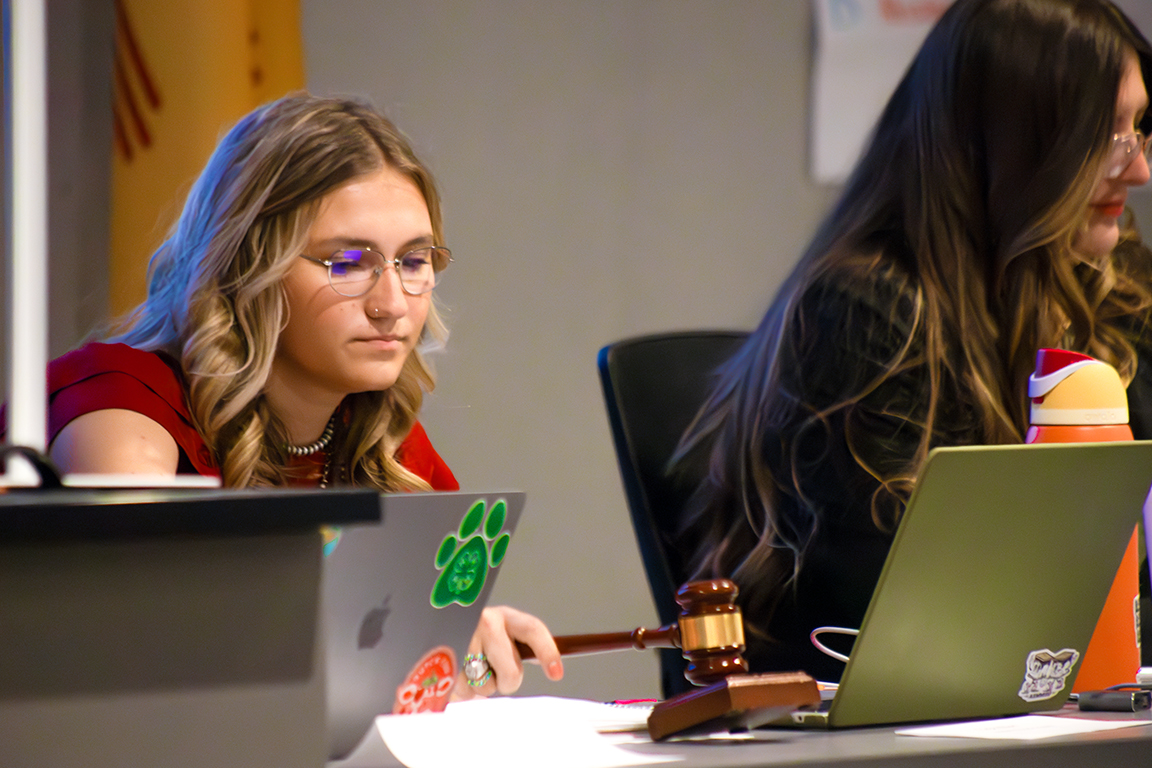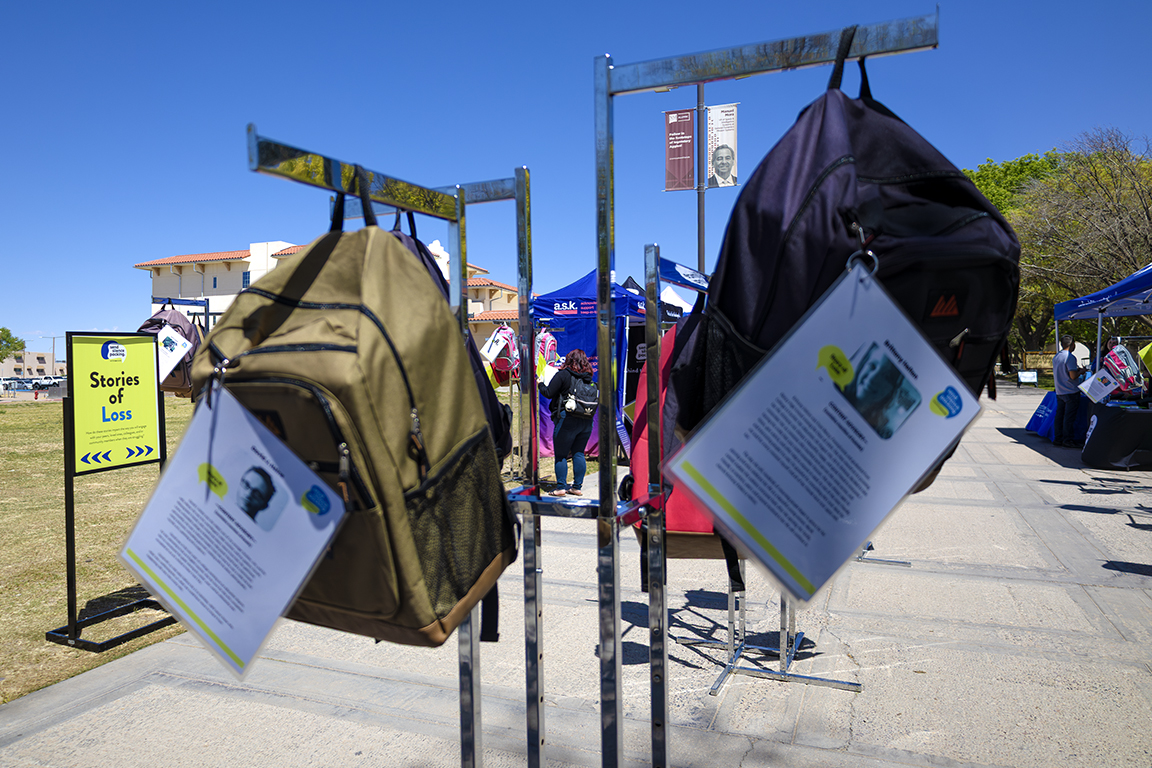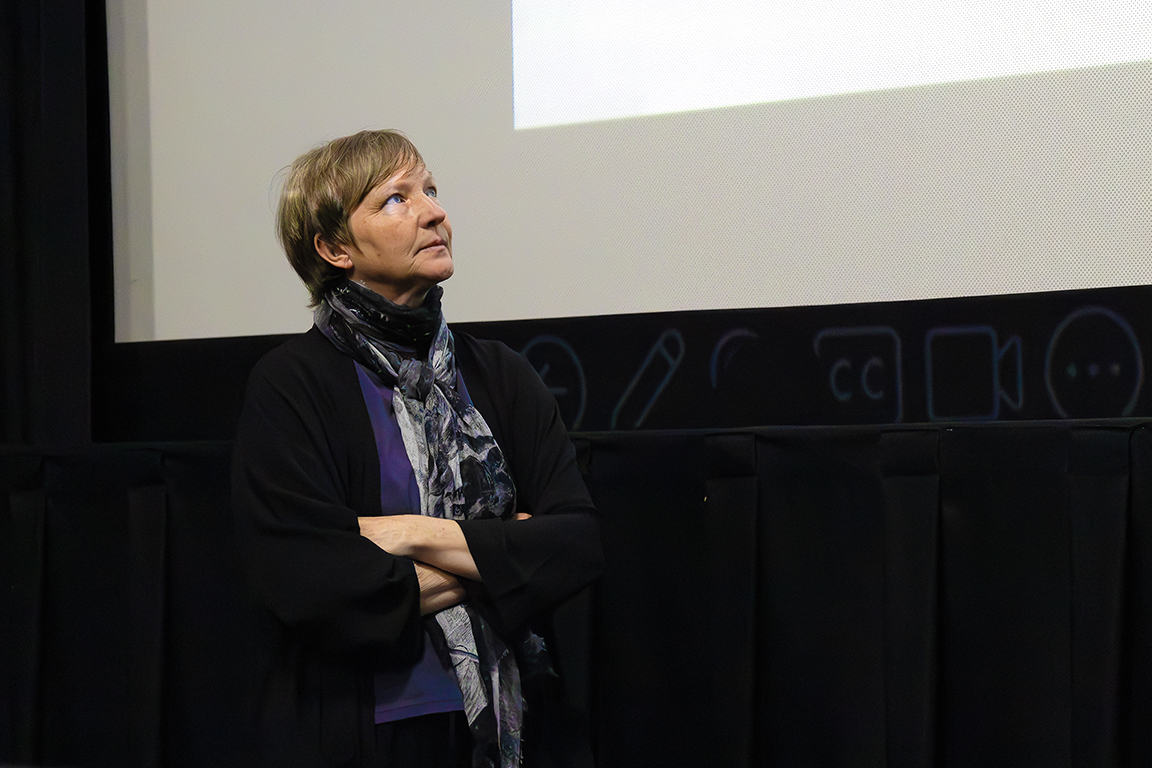The 68th Senate of the Associated Students of New Mexico State University met on Oct. 3, in which15 bills were passed. Many bills were introduced and quickly passed, but one took much deliberation — an amendment to Bill 50.
The first half of the meeting consisted of senators introducing amendments that were quickly passed through the readings. Many of the bills included amendments that were deemed necessary by the attorney general.
The bill amendments introduced and passed consisted of setting clear points for missing or being late to emergency meetings, making it clear that the deputy attorney general can be appointed through internship positions, and clarified that when this section discusses the number of days it is referring to business days.
The meat of this senate meeting came in the second half, when discussing Bill 50, sponsored by Pro-Tempore Isabelle Diaz.
Diaz shared that her goals with introducing this bill were to promote more fairness in the treatment of students by ASNMSU.
“I sponsored sub-bill 50 to revise our bylaws regarding the allocation of funds to students, with the primary goal of enhancing fairness and transparency, while ensuring there is an equal opportunity for all students to come to ASNMSU and ask for the same amount of funding,” she said.
Diaz explained that she had initially proposed Bill 50 to allocate approximately $800 to each graduate, which would “allow [the senate] to assist approximately 500 students, aligning with our mission to support as many [students] as possible.”
However, Diaz consulted with the Graduate Student Council on this matter, in which she decided to increase the expenditure to $900 for all students. The bill was meant to address the ethical implications of funding disparities within the student population.
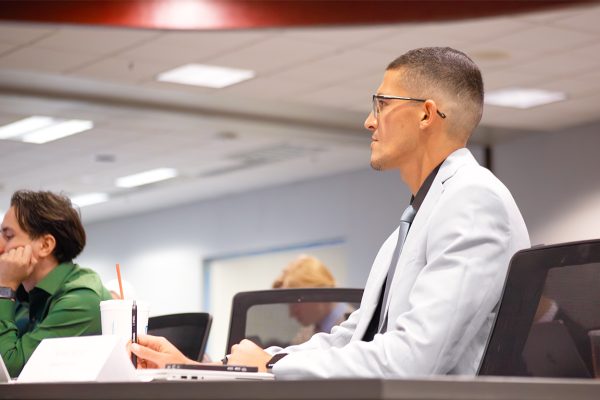
“Many of us felt it unjust to create a large gap in funding between graduate and undergraduate students. While I deeply appreciate the hard work graduate students contribute, particularly through their research, it’s crucial to recognize that ASNMSU allocates additional funds to the GSC,” she said.
Diaz elaborated that these additional funds include an extra $750 for graduate students travel that comes from the $34,000 allocated to their council, as well as another $10,000 for the Graduate Research & Arts Symposium event.
Three weeks prior to this meeting, the senate voted to lower the graduate expenditure from $1,000 to $900 and raise the undergraduate expenditure from $800 to $900 through Bill 50. But many disagreed with this outcome and wanted the expenditure for graduates to be raised back to $1,000.
Alex Duran, Business Council President, explained why graduate students need the extra $100 for their bills, and why the amendment is crucial.
“One thing I take away from a grad student is the research that they bring in, which is what brings in the R1 status that NMSU gets money for; it doesn’t come from parties or events,” he said.
For context, R1 status is achieved through academic research and is given to universities through the Carnegie Foundation. Universities have to meet certain criteria to reach this status, such as spending $50 million on research and development, and awarding at least 70 doctoral research degrees. Receiving this status means that the university can receive federal and private funding for their research.
Ala Alhalholy, ASNMSU president, also shared her feelings on undergraduate and graduate students’ expenditures.
“To me, even with my time as a senator last year, it’s always been a big thing that undergraduates and graduates are treated the same, regardless of where they’re from or if they’re international,” she said.
Alhalholy explained why she felt the graduate expenditure should be raised back up to $1,000.
“So, lowering the recommended expenditure to $900 & $900 was such an inequitable choice to make, because it lowered $100
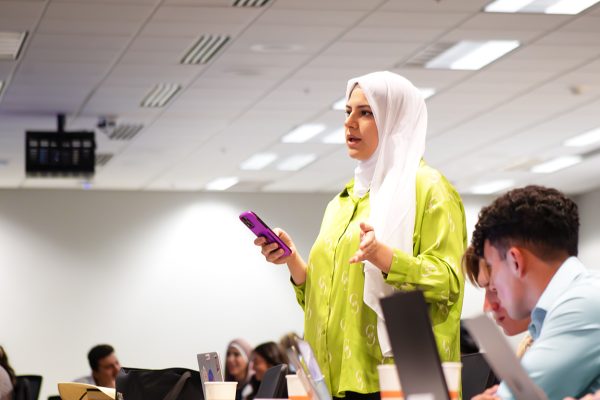
for graduate students. And I think that something a lot of people don’t realize is 75% of our graduate students are international and they’re only allowed to work at the university and are only allotted so much time to work,” Alhalholy said. “Most of them have families and kids, they need to go to these conferences and do these research proposals to get jobs or to even graduate.”
During the meeting many deliberated on whether or not it was fair for graduate students to receive $100 more than undergraduate students. Many senators were not in favor of raising the expenditure because they said undergraduate students are important to the university as well.
In the end the bill was passed, and the graduate students’ expenditure was raised back to $1,000.
Alhalholy shared her final thoughts on this, expressing that she hopes the end goal for the senate continues to be fairness and equality.
“Keep it fair and equal for all students, that’s what we are here to do, we are here to serve students. That’s what we are elected to do, I just hope people don’t lose sight of that,” she said.


